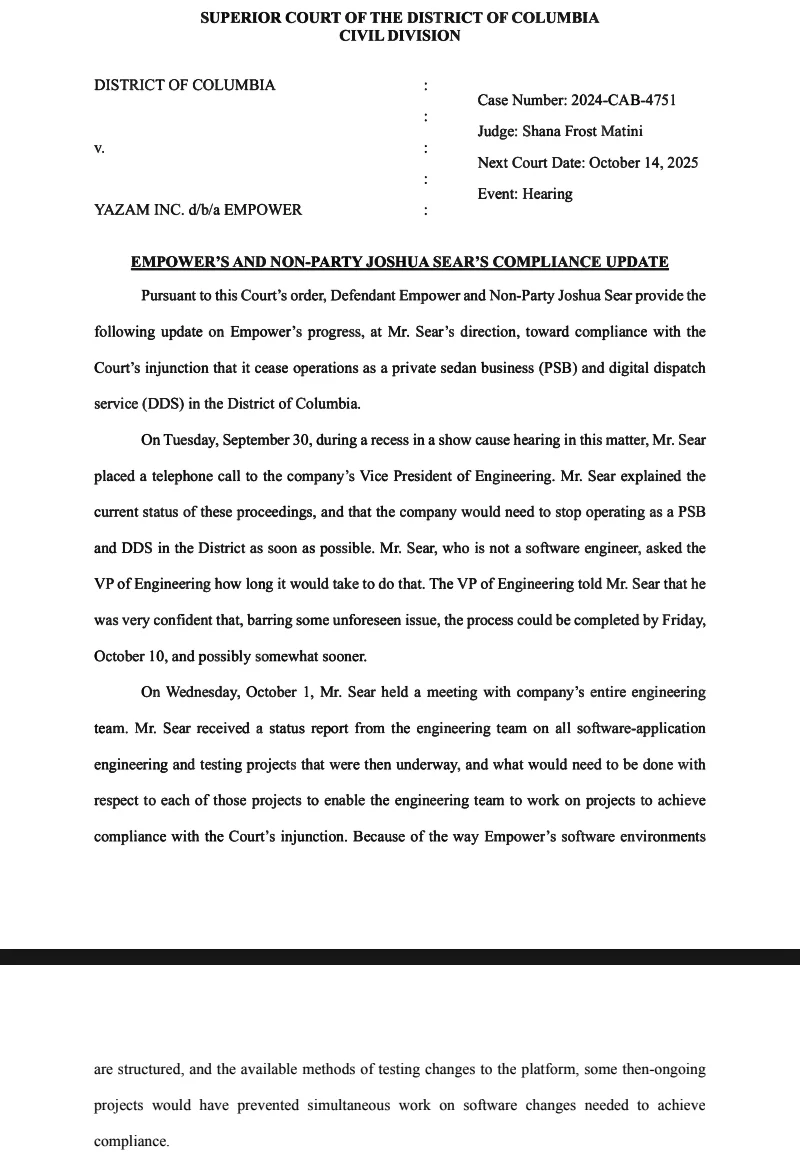The Superior Court of the District of Columbia has mandated that the Empower rideshare app cease operations in Washington, D.C., due to ongoing regulatory noncompliance. This decision follows a protracted legal conflict between Empower and the D.C. Department of For-Hire Vehicles (DFHV), which accused the Texas-based company of illegally connecting passengers with drivers lacking commercial licenses.
According to The Washington Post, Empower defended its business model by comparing it to platforms like Craigslist, arguing that it merely facilitated connections between private individuals. Despite this defense, multiple warnings and civil penalties failed to achieve compliance, resulting in a court order for the app's shutdown within the district. This case has attracted attention from gig-economy advocates and transportation regulators across the country.
Court documents indicate that Empower accrued over $1 million in unpaid fines due to persistent violations of D.C.'s for-hire vehicle laws. Regulators noted that more than 500 active Empower drivers continued operating in defiance of cease-and-desist orders, highlighting widespread noncompliance. The Superior Court's latest directive effectively halts these operations under threat of contempt proceedings and potential criminal charges against company executives.

A 2024 report from the D.C. DFHV shows that traditional ride-hailing companies such as Uber and Lyft recorded over 25 million trips within city limits that year, compared to Empower's estimated 600,000 trips. While this underscores Empower's smaller market share, it also points to its disruptive influence through a driver-controlled pricing model appealing to independent operators seeking to bypass corporate commissions.
The Superior Court of the District of Columbia was established in 1970 and serves as the trial court for local matters within the District. It handles various cases including civil, criminal, family, probate, tax, and traffic issues under the D.C. Court Reform and Criminal Procedure Act.


